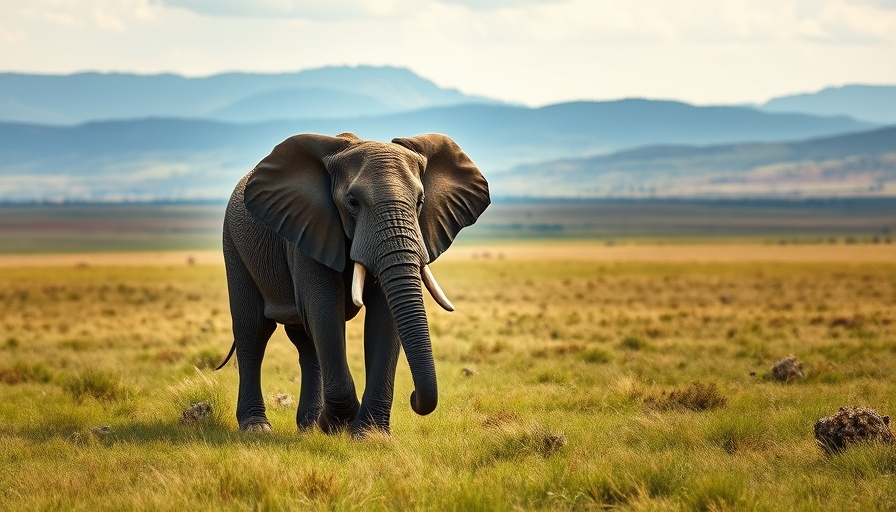
A Medical Marvel: The Story of Chi Chlorb
In a groundbreaking medical procedure that recently captured global attention, a veterinary team from the University of Pretoria (UP) performed Cambodia's first-ever tusk extraction on Chi Chlorb, a distressed Asian elephant residing in the Kulen Elephant Forest (KEF) sanctuary in Siem Reap. This milestone in international veterinary care shines a light on both ethical wildlife treatment and the importance of international collaboration in conservation efforts.
Unpacking the Surgery: Risks and Rewards
Chi Chlorb had been suffering from a fractured tusk for the past 18 months. Dr. Navaneetha Roopan, head veterinarian for Wildlife Alliance, identified the situation early on and highlighted potential risks such as infection and chronic discomfort that the elephant faced due to the injury. The surgery aimed to alleviate these health threats and marked an essential advancement in animal care in Cambodia.
Why This Matters: The Broader Implications for Conservation
This heroic intervention not only saved Chi’s life but also represents a new chapter in conservation practices across Southeast Asia. Many elephants at KEF are trauma survivors, having endured years in the brutal tourism industry. This surgery signifies a collective commitment to ethical wildlife treatment, offering hope to other sanctuaries in the region.
The Cultural Significance of Elephants in Cambodia
In Cambodian culture, elephants are revered as majestic animals with deep ties to spirituality and local customs. They play a vital role in folklore, symbolizing strength and loyalty. However, the stark reality of their treatment in tourism presents a divide, making the conservation of these beautiful creatures critical. This historical surgery amplifies the conversation around rescuing and rehabilitating elephants while respecting and honoring their cultural significance.
Future Forecasts: Trends in Animal Veterinary Care
The successful tusk extraction could pave the way for future treatments of injured elephants and other wildlife. Experts in the field expect this operation to inspire heightened safety protocols and veterinary initiatives for wildlife across various regions. As more veterinarians and conservationists work together, the possibility of advanced methods in wildlife care becomes increasingly promising.
Cultural Lessons: Understanding Ethical Wildlife Tourism
As travelers, understanding the implications of wildlife tourism is crucial. Elephants, often used in rides and shows, face immense physical and psychological stress. This incident serves as a reminder to us—all travelers and animal lovers—of the importance of choosing ethically responsible wildlife encounters. Prioritizing ecotourism that respects animal welfare protects not only the creatures but enhances our travel experiences by fostering authentic cultural connections.
A Personal Touch: Emotional Resonance of Animal Rescue
The story of Chi Chlorb resonates deeply with many travelers. We often form profound connections during our adventures, including understanding and appreciating the animals and landscapes around us. Knowing that an elephant like Chi is now on a path to recovery can evoke a sense of relief and hope. As travelers, familiarizing ourselves with stories like these reminds us of the impact we can have in promoting kindness towards wildlife.
Next Steps: How You Can Support Wildlife Conservation
Travelers interested in wildlife protection can contribute significantly through ecotourism initiatives. Choosing ethical travel agencies, participating in wildlife conservation programs, and supporting sanctuaries can help create a positive impact. Each visit to a location can double as an opportunity to advocate for better treatment of animals, combined with the engaging experiences that make travel memorable.
In a world that sometimes seems hostile to animal well-being, the story of Chi Chlorb and the team from UP is a refreshing reminder of compassion and care. By participating in conscious tourism, you play an essential role in crafting a future where such beautiful animals are treated with the dignity they deserve.
 Add Row
Add Row  Add
Add 




Write A Comment